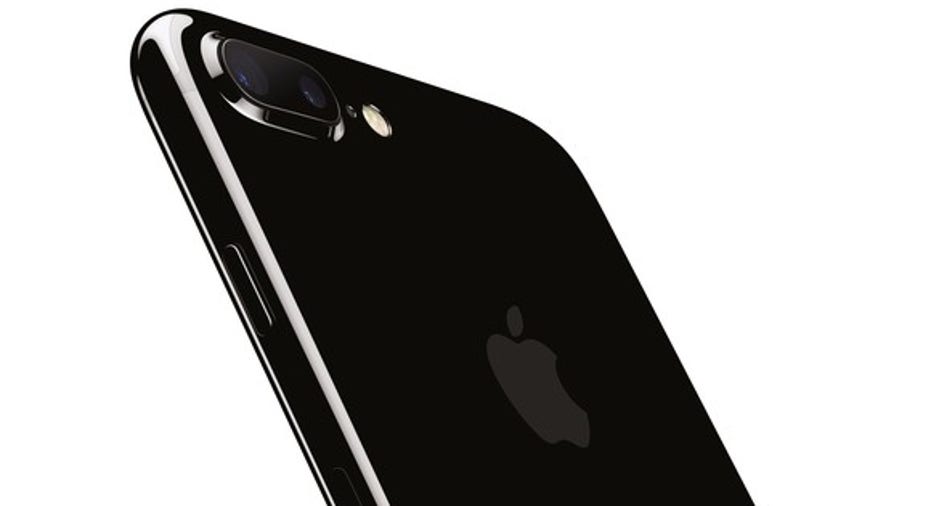Apple Inc.'s iPhone 7 Plus Is a Smash Hit

The first quarter of an Apple (NASDAQ: AAPL) fiscal year is usually the company's peak quarter, as it follows the launch of Apple's latest flagship iPhone device. The iPhone generates the bulk of the company's revenue, and so the quarter in which Apple sees the most iPhone shipments is the quarter in which it sees its greatest revenue.
Apple's iPhone 7 Plus. Image source: Apple.
Although there were rumors that Apple was seeing relatively tepid demand for its latest iPhone models -- the iPhone 7 and the iPhone 7 Plus -- the company's financial performance tells a different tale.
Apple reported shipping a record 78.29 million iPhones in the first quarter, handily beating its previous quarterly record of just shy of 75 million units. CEO Tim Cook said that it saw "exceptional demand" for iPhones that "beat [Apple's] own internal expectations."
This robust unit demand didn't come at the expense of average selling prices, either -- iPhone average selling prices in the quarter came in at just a hair under $695.
Just as the iPhone business is the star of the company's most recent earnings report, the iPhone 7 Plus appears to be the star of the iPhone business.
iPhone 7 Plus is a smash hit
Cook said that the iPhone 7 is the company's "most popular model," but he highlighted the fact that the company saw "especially strong demand for iPhone 7 Plus."
Demand was so strong, in fact, that Cook says that the iPhone 7 Plus made up "a higher portion of the new product mix than [Apple has] ever seen with Plus models in the past."
To further drive the point home, even given the stronger-than-expected unit shipment performance during the quarter, Apple reported that "demand for iPhone 7 Plus exceeded supply throughout the quarter" and that the company only "came into supply/demand balance in January."
And, finally, it's worth pointing out that Apple is seeing this unexpectedly strong iPhone 7 Plus demand even though it priced the devices at a $20 premium to where it had priced previous iPhone Plus models (which previously carried $100 premiums over their non-Plus counterparts).
Clearly, Apple's customer base likes what the company did with the iPhone 7 Plus and was willing to pay a premium for the added features.
In the past, Apple had differentiated its Plus models with larger, sharper displays as well as some very minor camera enhancements (i.e., optical image stabilization). However, this time around, in addition to the usual points of differentiation, Apple included a dual-lens camera on the iPhone 7 Plus which enabled an interesting optical zoom feature.
The key lesson here is that if Apple brings interesting innovations and features to premium products and tries to charge a premium for those features, then it may very well get paid for those features.
Open sesame
At this point, it's obvious what Apple should do next -- introduce even higher-priced iPhones with even more interesting features and points of differentiation. Apple shouldn't go wild adding in every feature under the sun, but its product definition and marketing teams should now have the freedom to go ahead and build products with higher cost structures that are intended to sell at higher price points.
Such products, launched in conjunction with models priced at the more "typical" price points, could be quite successful for the company. In fact, current rumors suggest that Apple is planning to launch two straightforward successors to this year's iPhone 7 and iPhone 7 Plus, and then higher up in the product stack, the company may launch an iPhone with a curved OLED display and other goodies.
If the upcoming OLED iPhone is a fundamentally compelling product -- and I think it will be -- then I could see Apple successfully charging even more for it than it does for its top iPhone 7 Plus models.
The next couple of years could be very interesting for Apple's iPhone product line and, ultimately, its business!
10 stocks we like better than Apple When investing geniuses David and Tom Gardner have a stock tip, it can pay to listen. After all, the newsletter they have run for over a decade, Motley Fool Stock Advisor, has tripled the market.*
David and Tom just revealed what they believe are the 10 best stocks for investors to buy right now... and Apple wasn't one of them! That's right -- they think these 10 stocks are even better buys.
Click here to learn about these picks!
*Stock Advisor returns as of January 4, 2017
Ashraf Eassa has no position in any stocks mentioned. The Motley Fool owns shares of and recommends Apple. The Motley Fool has the following options: long January 2018 $90 calls on Apple and short January 2018 $95 calls on Apple. The Motley Fool has a disclosure policy.



















